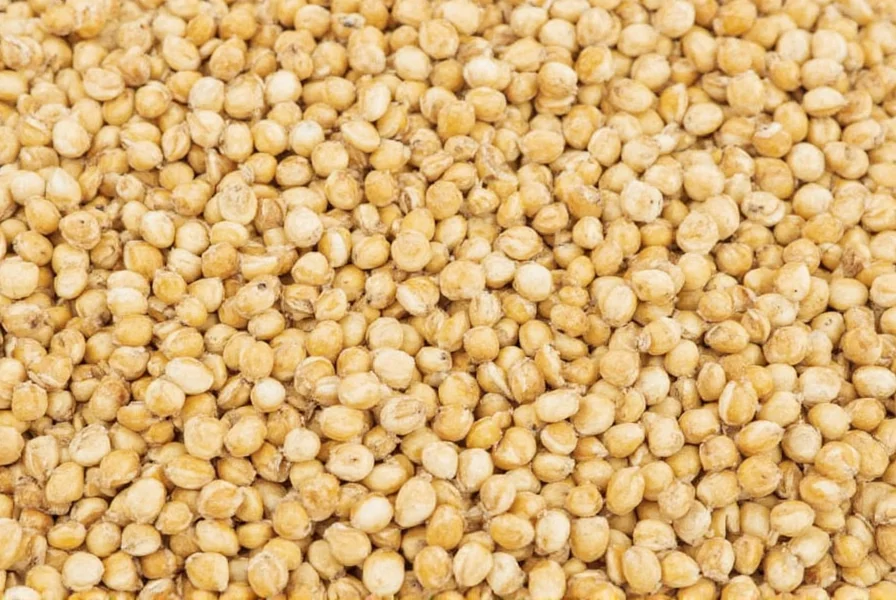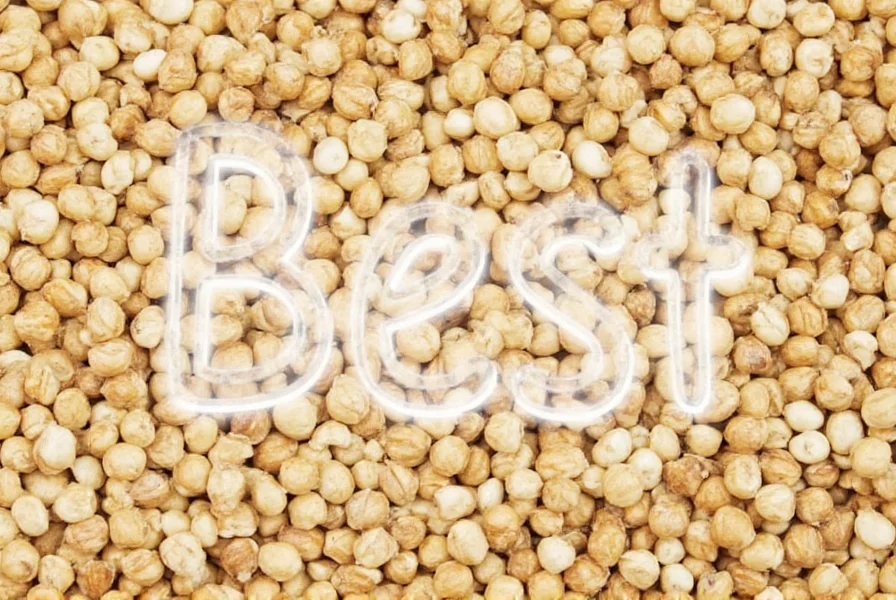The most effective fenugreek seeds replacements are mustard seeds for savory dishes, maple syrup for sweet applications, and celery seeds for a similar earthy flavor profile. For Indian cuisine specifically, a combination of mustard seeds and a pinch of maple syrup best replicates fenugreek's unique bitter-sweet taste. When substituting, use a 1:1 ratio for mustard or celery seeds, while maple syrup should be used sparingly at 1/4 teaspoon per teaspoon of fenugreek seeds.
Fenugreek seeds, known as methi in Indian cooking, provide a distinctive bitter-sweet flavor that's challenging to replicate. Whether you've run out of this spice or need an alternative due to allergies, understanding proper replacements ensures your recipes maintain their intended flavor profile. This guide explores scientifically-backed substitutes that work across various cuisines, with specific ratios and application tips.
Understanding Fenugreek's Unique Flavor Profile
Fenugreek seeds contain over 40 distinct aroma compounds, with sotolone being the primary component responsible for their characteristic maple-like sweetness combined with bitter undertones. This complex profile makes direct substitution difficult, as most alternatives only capture one aspect of fenugreek's flavor. The seeds' bitterness comes from alkaloids like trigonelline, while their sweet notes derive from the same sotolone compound found in aged rum and maple syrup.
When selecting a replacement, consider whether your recipe requires:
- The bitter component (common in savory Indian dishes)
- The sweet-maple note (used in some Middle Eastern and Ethiopian cooking)
- Both elements in balance (typical for authentic Indian curries)
Top Fenugreek Seeds Replacement Options
Mustard Seeds: Best for Savory Applications
Yellow mustard seeds provide the closest approximation of fenugreek's bitter notes without the sweetness. When heated in oil (tempered), they develop a nutty flavor that mimics fenugreek's earthiness. This makes them ideal for fenugreek seeds substitute for curry applications, particularly in dals and vegetable dishes.
Usage ratio: 1:1 replacement. Add mustard seeds at the same point in your recipe where you would normally add fenugreek seeds.

Maple Syrup: Capturing the Sweet Element
For recipes where fenugreek's sweet-maple note dominates (like some Ethiopian stews), pure maple syrup works surprisingly well. This is particularly effective as a fenugreek seeds alternative without maple flavor when you need to replicate that specific aspect.
Usage ratio: 1/4 teaspoon maple syrup per teaspoon of fenugreek seeds. Add during the final stages of cooking to preserve flavor.
Celery Seeds: Earthy Flavor Substitute
Celery seeds share fenugreek's earthy, slightly bitter profile without the sweetness. They contain similar volatile compounds that provide that distinctive savory note. This makes them excellent for fenugreek substitute for baking applications where you want the herbal note without sweetness.
Usage ratio: 3/4 teaspoon celery seeds per teaspoon of fenugreek seeds. Grind before use for better flavor distribution.
Substitution Guide by Cuisine Type
| Cuisine Type | Best Replacement | Ratio | Special Tips |
|---|---|---|---|
| Indian Curries | Mustard seeds + pinch of maple syrup | 1 tsp mustard seeds + 1/8 tsp syrup | Add mustard seeds during tempering, syrup near end |
| Middle Eastern Dishes | Celery seeds | 3/4 tsp per 1 tsp fenugreek | Grind seeds before adding to dishes |
| Ethiopian Wat | Maple syrup + cumin | 1/4 tsp syrup + 1/4 tsp cumin | Add during final 10 minutes of cooking |
| Baking/Bread | Fennel seeds | 1:1 replacement | Toast seeds lightly before use |
Special Considerations for Medical Applications
Some search for fenugreek seeds replacement for diabetes due to fenugreek's blood sugar regulating properties. While culinary substitutes work for flavor, they don't replicate fenugreek's medicinal compounds. If using fenugreek for health reasons, consult a healthcare provider before substituting, as alternatives won't provide the same galactomannan fiber or 4-hydroxyisoleucine compounds that affect glucose metabolism.
When Substitutes Won't Work
Certain traditional recipes rely so heavily on fenugreek's unique chemistry that substitutions significantly alter the dish. Authentic methi maaz (fenugreek lamb curry) and kasundi (Bengali mustard sauce) require actual fenugreek for proper flavor development. In these cases, consider:
- Seeking out authentic Indian grocery stores
- Ordering whole fenugreek seeds online (they store well for 2+ years)
- Using fenugreek leaves (kasuri methi) as a last resort (use 1 tbsp dried leaves per 1 tsp seeds)
Pro Tips for Successful Substitution
Professional chefs recommend these techniques when implementing your fenugreek seed substitute ratio:
- Toast first: Dry-toast any seed substitute before use to enhance flavor complexity
- Layer flavors: Combine two substitutes (like mustard seeds + a hint of maple) for more complete replacement
- Taste as you go: Add substitutes gradually, tasting between additions
- Consider timing: Add bitter substitutes early in cooking, sweet elements near the end

Final Considerations
Finding the right best replacement for fenugreek in Indian cooking depends on your specific recipe and desired flavor balance. While no single substitute perfectly replicates fenugreek's complex profile, understanding which elements you need to replace makes the process much more successful. Keep notes on which substitutes work best for your favorite recipes to build your own personalized substitution guide over time.
Can I use fenugreek leaves instead of seeds?
Yes, but with adjustments. Use 1 tablespoon of dried fenugreek leaves (kasuri methi) to replace 1 teaspoon of fenugreek seeds. Crush the leaves between your palms before adding to release oils. Note that leaves have a more pronounced bitter note and less sweetness than seeds, so this works best in savory dishes where you can balance with a touch of sweetness from other ingredients.
What's the best fenugreek substitute for vegan recipes?
For vegan applications requiring fenugreek's flavor, a combination of 3/4 teaspoon mustard seeds and 1/8 teaspoon maple syrup works best. Mustard seeds provide the bitter base while maple syrup adds the characteristic sweetness. This pairing effectively mimics fenugreek's profile without animal products, making it ideal for vegan versions of traditional Indian dishes.
How do I substitute fenugreek in pickling recipes?
For pickling, celery seeds are the superior substitute, using a 3:4 ratio (3/4 teaspoon celery seeds per 1 teaspoon fenugreek). The earthy notes translate well to vinegar-based preserves. Add the celery seeds during the initial heating of the brine to allow full flavor extraction. Avoid sweet substitutes in pickling applications as they can interfere with proper preservation.
Can I use fenugreek powder instead of whole seeds?
Yes, use 3/4 teaspoon fenugreek powder to replace 1 teaspoon whole seeds. Powder provides more immediate flavor release but can become bitter if overused. Add powdered fenugreek later in the cooking process compared to whole seeds, which need time to release their flavor. For the best results when using powder as a replacement, mix it with a small amount of water to form a paste before adding to dishes.
Why does my fenugreek substitute taste bitter?
Bitterness typically occurs when using seed substitutes like mustard or celery seeds in excess, or when they're overcooked. To reduce bitterness: 1) Use the recommended ratios precisely, 2) Don't toast substitutes longer than 1-2 minutes, 3) Balance with a touch of sweetness (1/8 teaspoon sugar or maple syrup), and 4) Add acidic elements like lemon juice which counteracts bitterness. Remember that some bitterness is characteristic of fenugreek, so complete elimination isn't always desirable.











 浙公网安备
33010002000092号
浙公网安备
33010002000092号 浙B2-20120091-4
浙B2-20120091-4